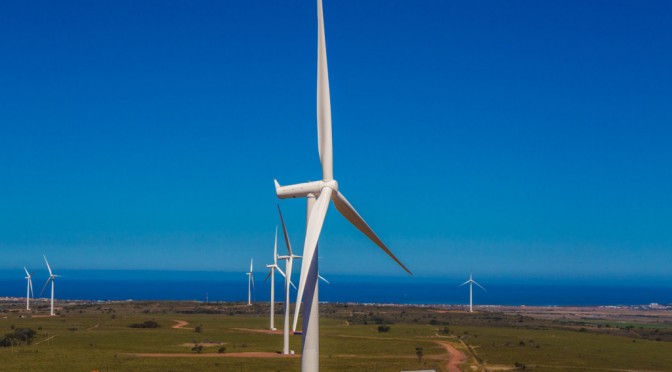Spanjaard, the investment director and portfolio manager at Rezco Asset Management, said before the implementation of the state’s renewables programme, wind power projects were about to be approved at a cost of 125c per kilowatt- hour (kWh).
“The government, under the auspices of the Department of Energy, then did some amazing work and developed the Renewable Energy Independent Power Producers Procurement Programme [REIPPPP]. Companies and consortia were in 2009 invited to competitively bid around clearly constructed criteria. “Round one bids were accepted at 115c/kWh, round two came in at 100c/kWh, round three at 74c/kWh, and by the time round four was reached in August 2014, the bid price had dropped to 62c/kWh. The same process caused solar power to be bid down from 275c/kWh in round one to 79c/kWh in round four.
In the fog of confusion caused by the chaos at Eskom, we lost sight of where the government had done really well in the area of power generation, said investment director Rob Spanjaard.
He said the state-run renewable energy programme had won international awards for its efficiency and impact and its success could provide a model to help Eskom out of its difficulties, which were currently dragging the whole economy down.
“This should be compared to the expected cost of 128c/kWh of new coal power from Medupi. Coal-generated cost increases to 168c/kWh if the cost of infrastructure like dams is included. The final costs of nuclear power are forecast to be more expensive than coal. These renewable energy projects are very profitable to the bidders, so there are increasing numbers of groups bidding for the projects available. At the last round, only 20% of bidding projects were selected,” Spanjaard said. The REIPPPP had already brought power and hope to communities that had never had access to basic services. The Duineveld township in !Kheis Municipality in Northern Cape was one such example, where 300 households benefited from the renewable energy programme. Led by Acwa Power Southern Africa, the project won the African Community Project of the Year award at the African Utility Week on 14 May for connecting 300 homes through 75 watt photovoltaic solar systems, making it possible for children to do their homework at night. The community project formed part of an IPP programme called Bokpoort Concentrated Solar Park, located in Groblershoop, Northern Cape. Once completed, the solar park will add 50 MW of clean energy to the national grid.
On 16 April, the Department of Energy approved 13 more new renewable IPP bids, which means there will now be 79 REIPPPP projects with 5 243MW being added to a national grid desperately in need of power. “The renewable programme is inspirational and visionary,” bid-winner Andrzej Golebiowski of Scatec Solar told Fin24 at the time. “It’s really big on a global scale. It’s over 4 000MW they [Department of Energy] are planning to award this year. It’s going to make it by far one of the biggest markets globally for renewables. That’s pretty impressive,” Golebiowski said after his company won three bids to produce solar energy in South Africa. His projects – solar photovoltaic Sirius Solar PV Project One, solar photovoltaic Dyason’s Klip 1 and solar photovoltaic Dyason’s Klip 2 – will collectively add 225MW to the grid. Spanjaard said these investments in energy benefited the country in many different ways, over and above energy generation. “In the process the country got an unbelievable bargain. Currently, 5 200 MW has been approved at a capital cost of R168-billion. The project winners had to supply all their own capital. About 40% of the spend is now local content and thousands of jobs have been created,” he added. “In addition, billions will be donated to community projects over the life of the projects, and all projects have to be [black economic empowerment] compliant. “The projects take about 12 to 18 months to get up and running from the time of approval, as compared to 10 years at Medupi.”
Referring to Eskom, he said the state got to tax the projects instead of having to subsidise a loss-making state entity. South Africa also got to protect its environment and, finally, the country got much-needed cheap electricity, he said. There were some basic lessons that could be learned from the Department of Energy’s renewable energy programme. “The lessons have nothing to do with privatisation or even renewable energy. The state – anywhere in the world – works best when it regulates, takes the position as referee, forces groups to compete openly and transparently, and then taxes them. “At the very least the government should analyse what has worked so spectacularly well for [it] in one area of power generation and apply these lessons to Eskom.”



